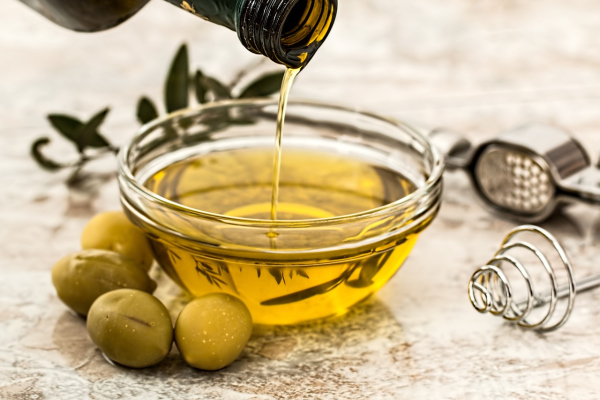 |
The Finest Harvest in Every Bottle:PDO/DOP Certified Extra Virgin Olive Oils |
 |
The Finest Harvest in Every Bottle:PDO/DOP Certified Extra Virgin Olive Oils |

The Impact of Climate Change on Olive Oil ProductionRising TemperaturesClimate change is causing rising temperatures, which can affect olive tree growth and fruit production. Higher temperatures can lead to reduced yields and impact the quality of extra virgin olive oil (EVOO). Olives thrive in Mediterranean climates, but extreme heat can stress the trees, leading to smaller fruits and lower oil content. Additionally, higher temperatures can alter the chemical composition of the olives, affecting the flavor and nutritional profile of the oil. Water ScarcityChanges in rainfall patterns and increased frequency of droughts are leading to water scarcity, making it challenging to irrigate olive groves. Water stress can reduce olive yield and oil quality. In regions where water resources are already limited, prolonged droughts can devastate olive crops. Farmers must adopt efficient irrigation practices and explore alternative water sources to sustain olive production under changing climate conditions. Pest and Disease PressureWarmer temperatures and altered climates can increase the prevalence of pests and diseases that affect olive trees. This adds additional pressure on farmers to manage and protect their crops. Pests such as the olive fruit fly and diseases like olive knot thrive in warmer, wetter conditions. Effective pest and disease management strategies, including integrated pest management (IPM) and the use of resistant olive varieties, are essential for maintaining healthy olive groves. Adaptation StrategiesFarmers are adopting various adaptation strategies to cope with climate change, such as selecting drought-resistant olive varieties, implementing efficient irrigation systems, and using sustainable farming practices. Agroforestry, crop diversification, and soil conservation techniques can also help mitigate the impact of climate change. Research and innovation are crucial for developing resilient olive farming systems that can withstand environmental stresses. Sustainable PracticesSustainability is becoming increasingly important in the olive oil industry. Producers are adopting sustainable farming methods to reduce their environmental impact and improve the quality of their oils. Organic farming, water conservation, and biodiversity preservation are some of the practices being implemented. Sustainable production not only benefits the environment but also appeals to environmentally conscious consumers, adding value to the product. Expert InsightsAgricultural scientist Dr. Emily Stone explains, "Climate change poses significant challenges to olive oil production, but innovative farming practices and adaptation strategies can help mitigate these impacts. By embracing sustainable agriculture, farmers can protect their crops and ensure the long-term viability of the olive oil industry." Consumer ResponsibilityConsumers play a crucial role in supporting sustainable olive oil production. By choosing olive oils that are certified organic or produced using sustainable practices, consumers can encourage more producers to adopt environmentally friendly methods. Reading labels and researching brands can help consumers make informed choices. Supporting local producers and fair trade initiatives can also contribute to more resilient and sustainable olive oil supply chains. Explore the environmental impact of olive oil production in our article on The Environmental Impact of Olive Oil Production. Learn about sustainable farming practices in Why Cold Pressed Extra Virgin Olive Oil is Superior and discover the different olive varieties in Exploring Different Olive Varieties Used in Extra Virgin Olive Oil. |
Disclaimer: Some articles on this site mention various health benefits of extra virgin olive oils. Some of the benefits have been researched and some are from individual's personal experiences. In any case, these articles are not intended to act as a medical reference. If you are using, or are considering using olive oil for specific health related issues, you are advised to speak with your health care provider for advice pertaining to your situation. These articles are for educational purposes only.